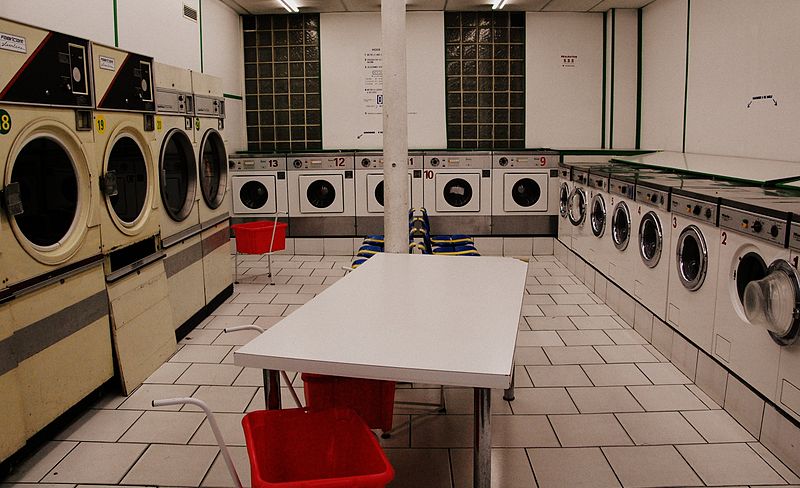

Doing laundry in Paris, by LWY
The subject of software patents in Europe returned to the headlines in light of the Unitary patent, which this new paper calls a matter of playing with fire. Basically, the EPO's overreach may prove counter-productive, not just contradictory to law (the EPO already disregards the law). Here is the EPO promoting the Unitary patent and Unified Patent Court, which are basically mechanisms for overriding the legal mechanisms of over a dozen nations (the UK already prepares for this policy laundering). It's micro-globalisation, or the first stage of a broader assimilation all around the globe.
"It's micro-globalisation, or the first stage of a broader assimilation all around the globe."Ante from the FFII writes about cross-Atlantic treaties that have a similar effect of policy laundering. He writes: "With the software patents directive the Commission told us it was only about computer implemented inventions, not about software patents. Looking at the text, we knew that was not true."
It seems like patent system globalisation is taking place (as we covered here many times before), jeopardising laws that ban software patents quite explicitly. In NZ (c/f software patents in New Zealand), for instance, the TPPA is believed to have impact on software parents policy. From the introduction of this very detailed post: "But how come the TPPA is connected with intellectual property (IP) and copyright law? The fact is that free trade and investment agreements have almost nothing to do with trade as we understand it. Their rules are designed for, and indirectly by, the most influential corporations in the countries involved. And guess who dominates? Major American corporations ranging from the world’s biggest drug companies and banks to Hollywood comprise almost 600 cleared advisors that get to see the secret text and lobby for their interests. Getting their demands into trade agreements is part of a general move towards “forum shifting” and “policy laundering” which refer to moving debate away from places where there is at least some requirement for public input and transparency, such as elected parliaments. Librarians, artists, writers, Internet businesses, schools, universities, museums, scientists and Internet users in general are all concerned about what the IP provisions of the TPPA will do to New Zealand’s copyright law."
Scroll down to the following part: "Extending Patents To Software
"Ante from the FFII writes about cross-Atlantic treaties that have a similar effect of policy laundering.""Another major issue is software patents. In New Zealand software is currently patentable merely because the Patents Act 1953 predated the widespread existence of software, and therefore does not specifically exclude it. In 2010, following submissions from a large number of software developers during the review of the Patents Act, the Commerce Commission Select Committee, recommended unanimously to the then Minister of Commerce, Simon Power, that software be specifically excluded from patentability in the resulting updated Patents Act. He and his successors have publicly supported this recommendation. New Zealand software developers saw this as a huge victory for common sense and for the future of innovation in New Zealand. But despite multi-partisan government support, the Patent Bill with its software patent exclusion has not yet been passed into law. Although the Government has made assurances to the contrary, many in the software industry wonder if the delay in passing the Patents Bill into law is due to the IP chapter in the TPPA being incompatible with a software patent exclusion.
"It is worth noting that IP claims are infecting other “non-IP” chapters of the TPPA. In fact a lot of the public health concerns relate to pharmaceutical patents blocking access by generic companies to their products, thereby delaying their availability on the market.15 This is part of the plan for undermining Pharmac. It was interesting to hear intellectual property being invoked as the basis of the case for Phillip Morris’ challenge to the New Zealand and Australian governments about their proposals for plain packaging of cigarettes.16In a completely Orwellian turn of events/phrase it seems that even the most corrupt of businesses - in this case Big Tobacco - are able to claim some weird moral ground through claims of IP and copyright.""
So now we know that those 'free' trade agreements may actually be cross-continental bridges for patent policy. ⬆